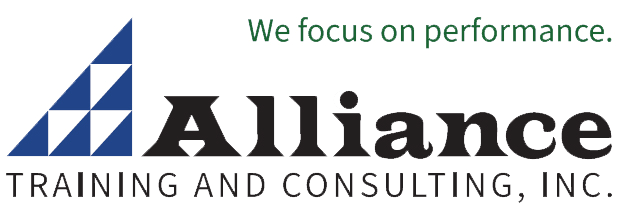Problem Solving and Decision Making
 Courseware Includes:
Courseware Includes:
 Intellectual Property:
Intellectual Property:
As an individual, facts and knowledge can only go so far. Solving tough problems requires the ability to define the true problem, analyze the possible causes, create options, select the most feasible option, and then implement it. This course should help individuals enhance their efforts to find sustainable solutions and learn new ways to approach problem-solving to reach win-win decisions.
How You Will Benefit:
- Increase your awareness of problem solving steps and problem solving tools
- Distinguish root causes from symptoms to identify the right solution for the right problem
- Improve your problem solving and decision making skills through identifying your own problem solving style
- Identify ways to think creatively and work toward creative solutions
- Recognize the top ten rules of good decision-making
What You Will Cover:
- What is Problem Solving?
- Problem Solving Styles
- Earthquake! (Case Study)
- The Problem Solving Model
- Six Ways to Approach a Decision
- The Problem Solving Toolkit (including Gradients of Agreement, fishbone analysis, lasso, cost/benefit analysis, using criteria, and force field analysis)
- Thinking Outside the Box
- Peerless Data Corp (Case Study)
Business Etiquette
 Courseware Includes:
Courseware Includes:
 Intellectual Property:
Intellectual Property:
In today’s world, business demands more than keeping your nose to the grindstone and your ear to the ground. You need business savvy and the ability to establish yourself in a credible manner. A faux pas at the wrong time can damage your career. If you are newly appointed to a management position, or if you interact with people you do not know on a regular basis, this workshop can help you succeed. If you want to enhance and polish your business image, or if you just want to avoid feeling uncomfortable in the corporate world, this workshop will allow you to take a quantum leap forward in skill, sophistication and confidence.
How You Will Benefit:
- Finesse introductions - from shaking hands and using eye contact to remembering names
- Dress appropriately for every business occasion
- Feel more confident of your business communication in every situation
- Use your business cards wisely
- Perfect your handshake
- Gain that extra edge that establishes trust and credibility
What You Will Cover:
- How business etiquette is crucial to your career
- How to make a good first impression
- Ways of remembering names
- Business card etiquette
- Dining etiquette
- How to shake hands
- Deciphering the dress code
- What to include in a business wardrobe
- Telephone etiquette
- E-mail etiquette
Business Ethics for the Office
 Courseware Includes:
Courseware Includes:
 Intellectual Property:
Intellectual Property:
What exactly makes a decision ethical? The problem with ethics is that what may seem morally right (or ethical) to one person may seem appalling to another.
This two-day workshop will not provide you with an easy way to solve every ethical decision you will ever have to make. It will, however, help you define your ethical framework to make solving those ethical dilemmas easier. We will also look at some tools that you can use when you are faced with an ethical decision. And, we will look at some techniques you can use so you do not get stuck in an ethical quandary. Best of all, we will dive in to a lot of case studies so that you can practice making decisions in a safe environment.
How You Will Benefit:
- Understand the difference between ethics and morals
- Understand the value of ethics
- Identify some of your values and moral principles
- Be familiar with some philosophical approaches to ethical decisions
- Identify some ways to improve ethics in your office
- Know what is required to start developing an office code of ethics
- Know some ways to avoid ethical dilemmas
- Have some tools to help you make better decisions
What You Will Cover:
- The definition of ethics and morals
- Identification of your values
- Kohlberg’s six stages of moral development
- Basic philosophical approaches
- Core decision-making tools
- Tools specific to ethical decision making
- 22 golden keys to an ethical office
- Dilemmas with co-workers, supervisors, clients and company policy
- How to avoid dilemmas
- Recovering from a mistake

